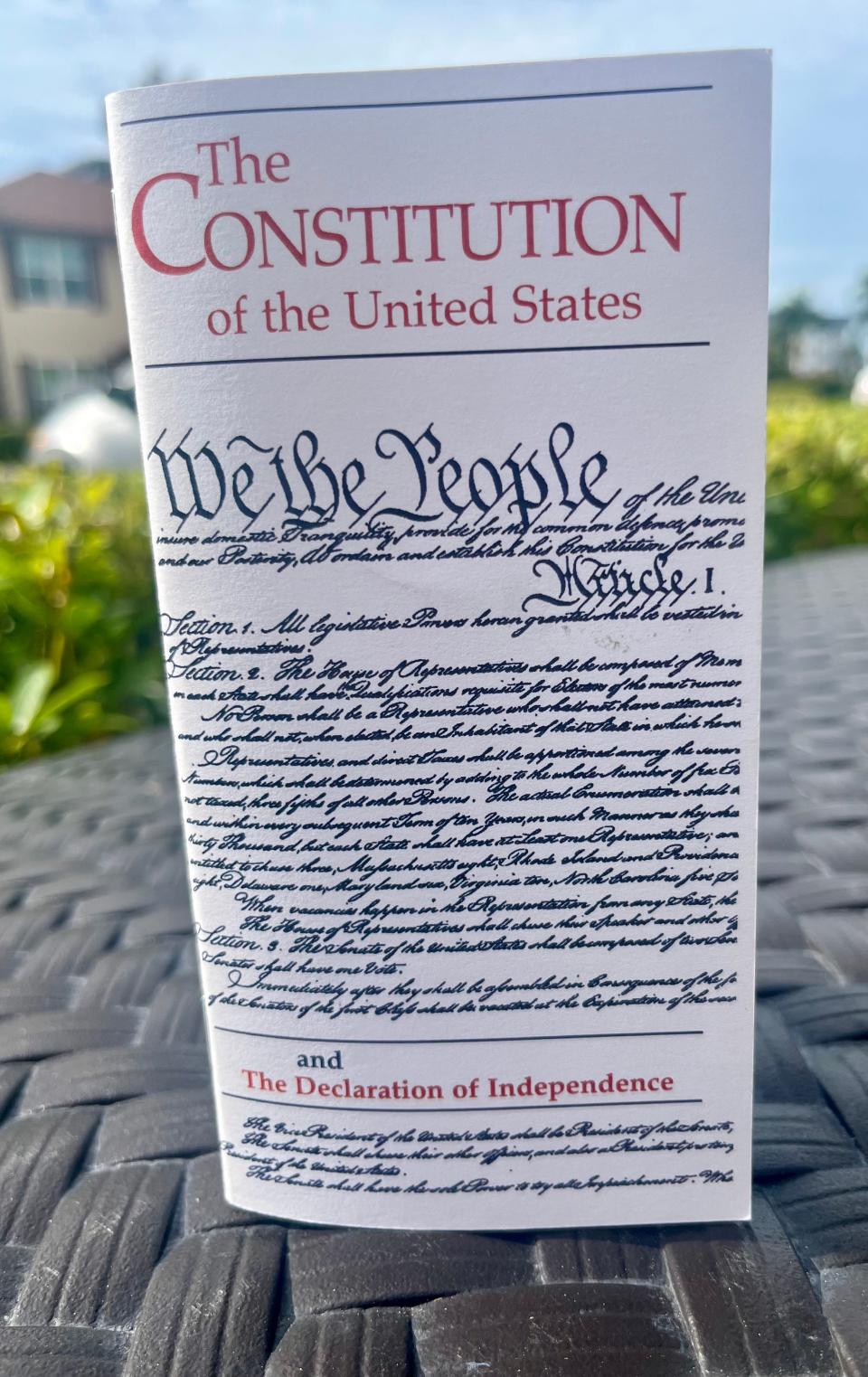Dover man's lawyer: Threat to 'impale' presidential candidate is free speech
- Oops!Something went wrong.Please try again later.
DOVER — An attorney for Tyler Anderson of Dover is arguing text messages he allegedly sent threatening to "disembowel" and "impale" a presidential candidate are protected free speech under the First Amendment.
Assistant federal public defender Dorothy Graham is representing Anderson, 30. He has been indicted on three federal counts of transmitting in interstate commerce a threat to injure the person of another, announced previously by New Hampshire U.S. Attorney Jane Young’s office. Each charge carries a sentence of up to five years in prison, up to three years of supervised release, and a fine of up to $250,000. He has pleaded not guilty.
Charging documents filed in his case accuse Anderson of sending threatening text messages in response to texts from presidential candidates’ campaigns between Nov. 22 and Dec. 8. Former Republican presidential candidate Vivek Ramaswamy’s campaign reported in early December he was threatened prior to a breakfast campaign event at the Roundabout Diner in Portsmouth on Dec. 8.
The first charge alleges Anderson texted one candidate’s campaign with a threat to “impale” and “disembowel” the candidate. The second charge alleges Anderson threatened to “blow” the head off of another candidate and conduct a “mass shooting,” while the third charge alleges Anderson threatened to “blow” the “brains out” of a third presidential candidate and “kill everyone” who attended the candidate's campaign event and desecrate their corpses.
Graham is seeking to have the first charge dropped.
What is the free speech argument on threats to presidential candidates?

Graham argues the First Amendment should protect Anderson because he did not make a “true threat” in his Nov. 22 messages to the first presidential candidate’s campaign.
“Consideration of Mr. Anderson’s audience and the broader exchange in which his statements occurred establishes that the alleged messages do not constitute true threats,” Graham's motion to dismiss the charge reads. “First, whether Mr. Anderson’s messages even had an audience is uncertain; unfamiliar numbers sent the campaign messages to Mr. Anderson, often appearing automated and without an identifiable author … That any of Mr. Anderson’s replies would register with the campaign’s mass-messaging system or reach any reader was uncertain. Second, Mr. Anderson allegedly responded only after receiving at least thirty text messages from three different presidential campaigns between July 14, 2022, and December 8, 2023. This protracted campaign outreach occurred amidst the extremely polarized political climate of a presidential election year in an early primary state.”
Graham adds the prosecution did not consider the true language Anderson allegedly used in the Nov. 22 messages.
“The indictment omitted relevant language that meaningfully qualified Mr. Anderson’s response to the campaign outreach as crude opposition; specifically, that (the presidential candidate) ‘deserved to get impaled’ and that “‘disembowelment would work too,’” Graham wrote.
“Nothing suggests that Mr. Anderson aimed to carry out such conduct,” she added.
Graham has not filed any motion to dismiss the other two charges against him, according to online court records.
More local news: Dover and fired officer avoid trial on double-fatal Sixth Street crash, for now
Where the case against Tyler Anderson stands
The motion to dismiss the first charge against Anderson was filed Jan. 31. A trial in his case has been scheduled to begin on Feb. 21 in Concord before Judge Samantha D. Elliott.
Anderson was arrested Dec. 9 by the FBI and later released by U.S. marshals. Law enforcement received a search warrant to locate his phone and search Anderson’s Dover residence.
In his own account of what occurred the day of his arrest, Anderson wrote he was alone in his bedroom playing video games when “at least six” law enforcement officials forced themselves into his residence on Dec. 9 with their guns drawn. Anderson stated he was handcuffed and was told he was under arrest after he asked, then gave law enforcement the passcode to his phone and was transported to the Dover police station.
“At some point prior to the interrogation, I said to the agents, ‘Shouldn’t I have a lawyer present?’ I am not sure if the agents heard me because they did not respond,” Anderson’s testimony states. “When that non-response occurred, I went into the interrogation room. The agent read me my Miranda Rights and I signed the form. I signed the form because I was still ‘shell-shocked’ from the events of the day. The rights were read to me but I did not fully understand what was happening or appreciate the consequences. I signed it because I just wanted it to be over.”
A final pretrial video conference is set to occur with Elliott this Thursday, Feb. 8 at 2 p.m., court records show.
Young’s office has not confirmed the identities of any of the three presidential candidates Anderson allegedly threatened.
Graham did not respond to a request for comment on Tuesday.
This article originally appeared on Portsmouth Herald: NH man's lawyer: Threatening presidential candidate is free speech

